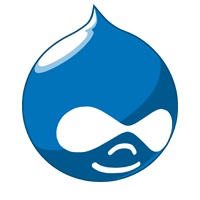Hire Freelance Drupal Developers and Engineers
Rafael Silva
Rafael is an experienced web developer with over seven years of expertise in working on Drupal CMS projects for notable organizations like MIT and Doctors Without Borders. He specializes in developing back-end and front-end code with automated tests, integrating systems through APIs, and building container-based infrastructures. Rafael always strives for quality in both work and communication.
Show MoreStephen Villee
Stephen has been a software engineer for over 30 years. From developing software for the Unix platform in the 1980's to producing enterprise-level financial and eCommerce software on PHP, JS, and the C language family, he prides himself on being meticulous and developing high quality software. He is a dedicated, efficient individual and a great communicator, and looks forward to contributing valuable skills to your project!
Show MoreRichard Dam
Richard is a seasoned product engineer with over a decade of experience building innovative products in the AI/ML, payment, and eCommerce fields. He's an experienced team leader, driving 10x growth for a startup's AI Chatbot and successfully heading the engineering team of GO VIET. As the CTO of a fintech company he co-founded, Richard's passion for product engineering and driving results make him an invaluable asset to any tech team.
Show MoreGledsley Müller
Gledsley is a front-end developer with a decade of experience working with FIFA, Bayer, ArcelorMittal, Casillero del Diablo, Gallo Family, Barefoot, Cinzano, and Honda. While he specializes in WordPress and Drupal—most recently focusing on Vue.js and React—he’s worked with a range of platforms, frameworks, and libraries. Gledsley is very detail-oriented, which puts him in good stead for pixel-perfect builds, semantic HTML, UX, and SEO projects.
Show MorePiwEL Massard
PiwEL is a senior full-stack web developer who easily adapts to any technology required for clients' projects. He thoroughly understands the requirements for web applications and provides the best infrastructures to allow for safe and fast growth and scaling. He has experience working in-house for large companies and as a consultant for a variety of organizations. He communicates well, prefers Agile methods, and has worked in teams of all sizes.
Show MoreFrantisek Trusa
Frantisek is a detail-oriented website and web application developer with a decade of experience delivering solutions, ranging from small microsites to big portals, including corporate intranets. He has been building Drupal-powered sites since version 4.7.
Show MoreSander Breukink
Sander is a developer who's currently living in the wonderful city of Eindhoven. He's been building websites since he was 14 years old, and at the time it was just a hobby, but over the years, he's worked for several companies and has gotten a significant amount of professional experience with website development.
Show MoreMilan Lukac
Milan is a back-end engineer who enjoys developing complicated systems and working with data. He likes to break systems into smaller loosely-joined parts and believes in writing maintainable and testable code. The bulk of his work consists of Python and PHP development, but he's also quite good at building with Symfony. Currently, Milan is exploringand learning about the potential of data science.
Show MoreEnrique Jimenez
Enrique is a skilled DevOps engineer with more than 12 years of hands-on experience supporting, automating, and optimizing critical deployments in cloud services (AWS and GCE). He's currently focused on developing container solutions using Kubernetes and automation using Ansible. Enrique is a firm believer in always using Terraform to maintain infra versions and is a big fan of the capabilities of Node.js and Ruby code.
Show MoreFlaviu Porutiu
Flaviu has over eight years of architecting and developing web applications using PHP, HTML, CSS, and JavaScript. He also has extensive knowledge developing mobile applications for both iOS and Android using hybrid technologies such as ionic. He worked with both startups and enterprise clients and also started his own startup and developed his own product (SaaS) that's being used by more than four businesses and expanding.
Show MoreYevgeny Alianov
Yevgeny is a Drupal architect with over a decade of experience building web apps for SMEs, startups, and agencies. He is an entrepreneur, a technical lead, and an active open source contributor who focuses on multi-site maintainability and web operations.
Show MoreDiscover More Drupal Developers in the Toptal Network
Start Hiring
































